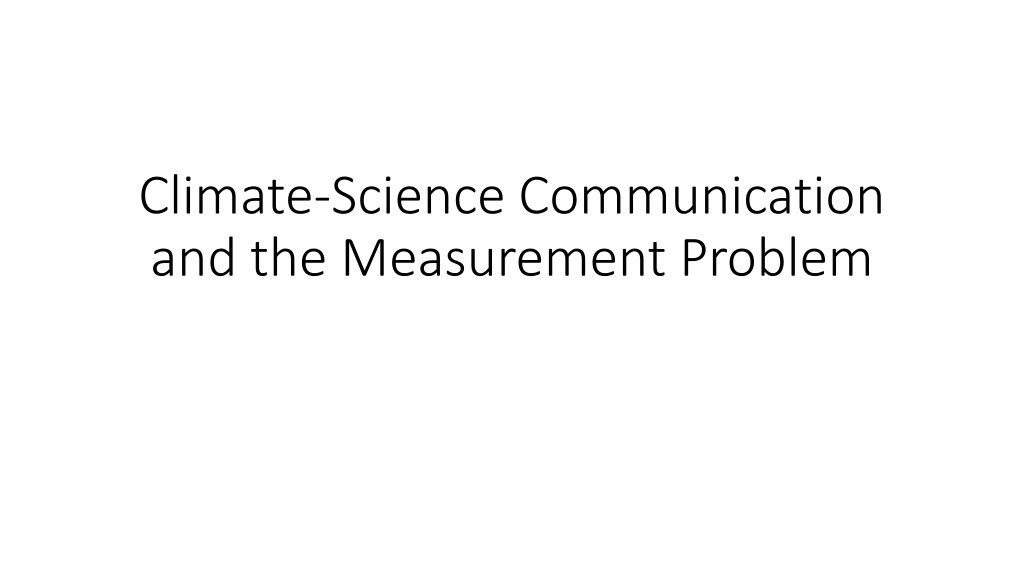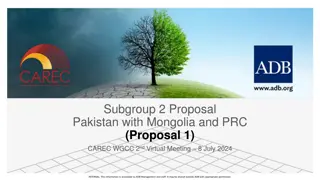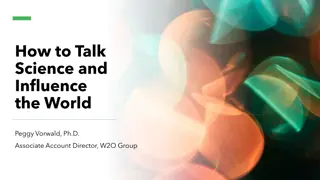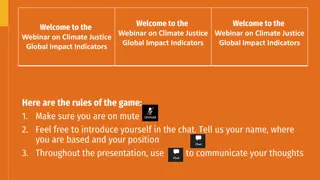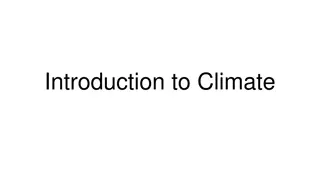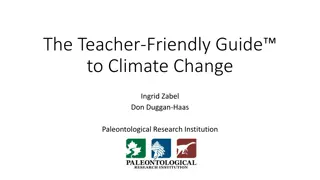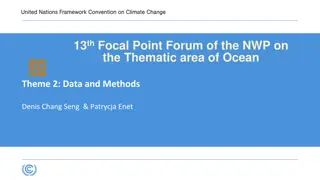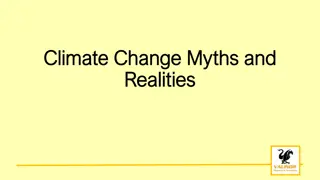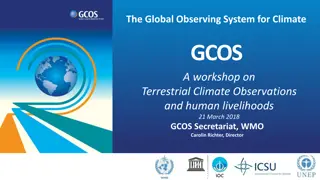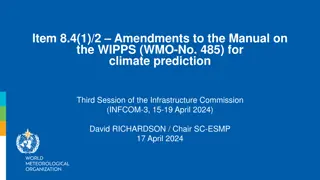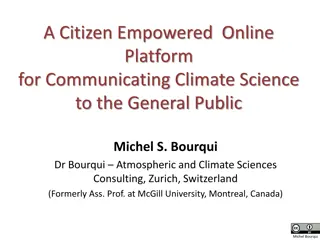Understanding Climate Science Communication and Knowledge
Exploring various aspects of climate science communication, scientific literacy, political identification, polarization, and religious beliefs in relation to climate science knowledge. The content includes insights on how different factors can influence perceptions and understanding of climate science.
Download Presentation

Please find below an Image/Link to download the presentation.
The content on the website is provided AS IS for your information and personal use only. It may not be sold, licensed, or shared on other websites without obtaining consent from the author. Download presentation by click this link. If you encounter any issues during the download, it is possible that the publisher has removed the file from their server.
E N D
Presentation Transcript
Climate-Science Communication and the Measurement Problem
Political Views and General Polarized versus Non-Polarized Risks
Religious Belief and Climate Science Knowledge
Does Knowing More Science Lead to Converging Views of the Threat of Climate Change?
Kahans Theory The source of the public conflict over climate change is not too little rationality but in a sense too much. Ordinary people understand that what they do is too inconsequential to affect either the climate or climate-change policymaking. Accordingly, if her actions reflect a misunderstanding of the basic facts on global warming, neither she nor anyone she cares about will face any greater risk. But because positions on climate change have become such a readily identifiable indicator of ones cultural commitments, adopting a stance toward climate change that deviates from the one that prevails among her closest associates could have devastating consequences, psychic and material. Thus, it is perfectly rational perfectly in line with using information appropriately to achieve an important personal end for that individual to attend to information in a manner that more reliably connects her beliefs about climate change to the ones that predominate among her peers than to the best available scientific evidence (Kahan, 2012).
What if we just give them more information on climate change?
Shift in public opinion in relation to release and publicization of studies quantifying extent of scientific consensus on climate change.
Based on what we just learned, what is the likely impact of this education campaign?
